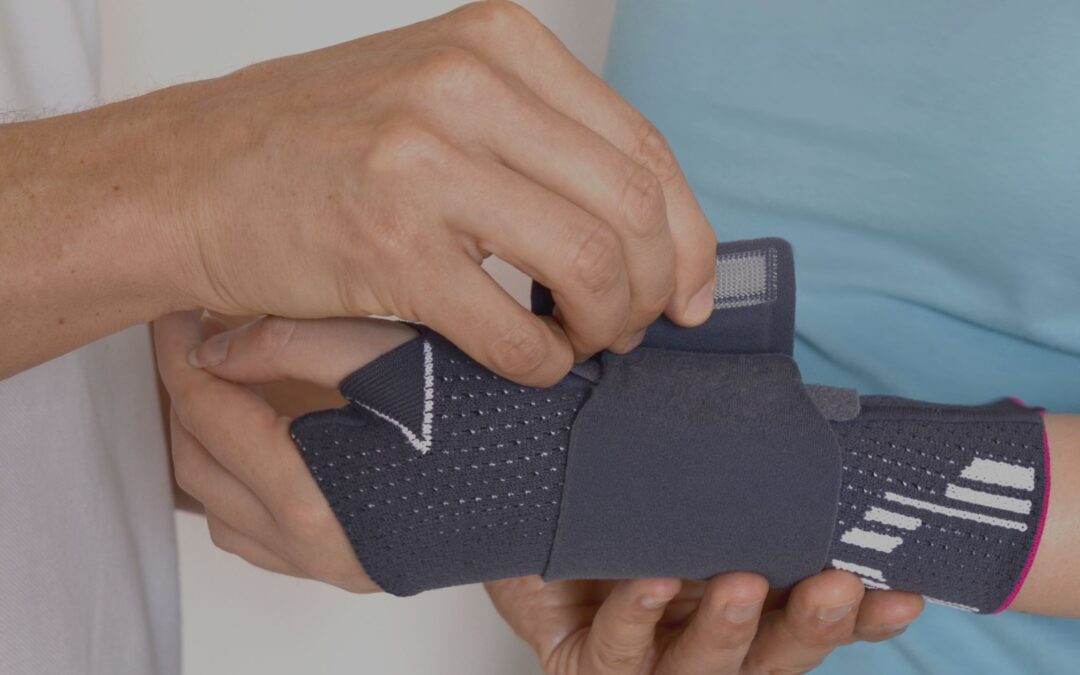From a quick procedure to treat painful carpal tunnel syndrome, to more extensive surgery to remove a cyst or treat a bad fracture, we’ve seen it all at our St George hand and wrist surgery clinic. Finding the right surgeon is important. But preparing for your hand or wrist surgery on your own before your procedure can also help.
Keep reading as we explore some of the ways that hand and wrist surgery patients can prepare, and why it’s so important to do so.
Talk With Your Primary Doctor or Internist
Following a sudden injury, you might not have time to talk with your primary care physician or internist ahead of your surgery. But if you’re suffering from a condition like carpal tunnel syndrome, you’ll likely have several weeks to prepare for your surgery. During this time, make sure to schedule an appointment with or give your primary care doctor a call.
At the hand surgery clinic, you’ll undergo a thorough pre-procedure checklist to check your blood pressure, run any necessary blood tests, etc. However, meeting with your doctor is still important.
He or she may make suggestions about changes to any current medications you’re taking. They’ll help to make sure that your blood pressure and blood sugar are in a healthy range ahead of time, which can help you avoid having to postpone your procedure. If you have an existing health condition, like diabetes, heart disease, or kidney disease, your primary care physician can verify that you’re healthy enough for surgery, or relay important information to the surgery clinic ahead of your appointment.
Consider Letting Go of Unhealthy Habits
It’s completely normal to feel nervous or anxious before your surgery. However, too much anxiety has a negative impact on your health. As your surgery date approaches, it can make it difficult to sleep, cause mood swings, or even impact your eating habits. It can even cause a spike in your blood pressure.
If you have weeks or longer to go before your surgery, now is a great time to consider letting go of some unhealthy habits that could be increasing your anxiety and impacting your health in other ways as well. For instance, drinking alcohol, using substances, and smoking can all contribute to feelings of anxiety, affect your sleep, and impact your overall health.
Tobacco use has also been shown to increase a patient’s risk of post-surgery complications. In severe cases, it can impact your heart and lung function. But even following more routine, less invasive procedures, smoking can cause your incisions to heal slower and increase your risk of developing an infection.
Fuel Your Body the Right Way
In addition to the anxiety, surgery puts stress on your body in other ways as well. Fueling your body with healthy foods and plenty of vitamins and minerals before your surgery can help keep you strong, and even help you avoid other ailments that can slow your healing.
Before your surgery, aim to eat plenty of healthy fruits and vegetables. Besides being good for you, these are easy for your body to digest. They’re also great for helping you to maintain a healthy weight post-surgery, when you may not be able to get back to your regular levels of physical activity right away.
Get Active
If you’ve suffered from a hand or wrist injury like a fracture or a chronic condition like carpal tunnel syndrome, you might not be able to enjoy the same kinds of physical activities that you once did. But this doesn’t mean that you shouldn’t stay active ahead of your surgery.
Studies have shown that patients undergoing certain surgeries bounced back faster if they stayed active before their procedure. Look for physical activities that you can do without using your injured arm or wrist. Even simply taking daily, brisk walks or cleaning up around your home can be good for staying active.
Staying on your feet before a hand or wrist surgery might not seem important. But physical activity, alongside a healthy diet, helps to keep your body strong and allows it to better heal itself, no matter what kind of surgery you’re scheduled for.
Ask About Pre-Procedure Guidelines
During your visit with the best St George hand and wrist surgery experts before your procedure, you’ll be provided with a list of pre-op guidelines. These include things like:
- No eating or drinking for a certain period ahead of your surgery
- Leaving your jewelry at home
- Taking—or not taking—certain existing medications
- Removing contact lenses or glasses
It’s very important to review and follow these guidelines on the days leading up to your surgery. While they might not seem that important to you, each one serves a very important purpose and will help ensure that your procedure is safe and effective and that it happens on schedule.
Plan to Have Help Post-Surgery
Many hand and wrist surgery procedures are routine and straightforward. With most, you’ll be back home the same day following your procedure. However, you’ll still want to do a little planning and preparing for things you might need post-op.
For instance, when you’re recovering from surgery, you might not feel up to cooking a meal, cleaning your home, or running errands. Make arrangements ahead of your surgery to have these tasks done. Plan to order food delivery or get help from a family member. Or, prepare some meals that you can microwave or otherwise easily prepare on your own.
If you have kids or care for an elderly family member, make sure to make arrangements for their care. Your hand surgeon will be able to give you a better idea of what to expect after your surgery, and how long it will take you to be able to do routine daily tasks. Ask this question early in the process so that you’ll have plenty of time to prepare.
Prep Your Home
In addition to not feeling up to cooking and cleaning, you might not be able to lift heavy objects or lift your arms above a certain point post-surgery. Take some time before your procedure to make sure that your home will be accessible for you when you get back. This might mean moving things you use daily off of that high shelf, or simply making yourself a spot in the living room to relax after your procedure, with the remote, a comfy blanket, and plenty of water within easy reach.
Follow All Post-Surgery Guidelines
Following your pre-procedure guidelines can help ensure that your hand or wrist surgery goes smoothly. And following any and all post-surgery guidelines can make sure that your healing and recovery go well, too.
Your surgeon will provide a list of things to do or to keep in mind during your recovery. This might include simple exercises to help you regain your mobility, medications that you need during your recovery, or things that you can’t do, like driving or lifting heavy things. Make sure to follow these guidelines closely. Failing to do so can lead to additional injuries, or can delay the healing process.
Preparing for Your Hand or Wrist Surgery
Taking some time to prepare for your hand or wrist surgery can help ease any anxiety you might be feeling, and help to set you up for a fast, successful recovery. From following any pre- or post-op guidelines to fueling your body and getting active, these simple tips are important.
Looking for the best St George hand and wrist surgery experts? Look no further! Check out our list of available services to learn how we can help you get back to doing what you love, pain-free.

